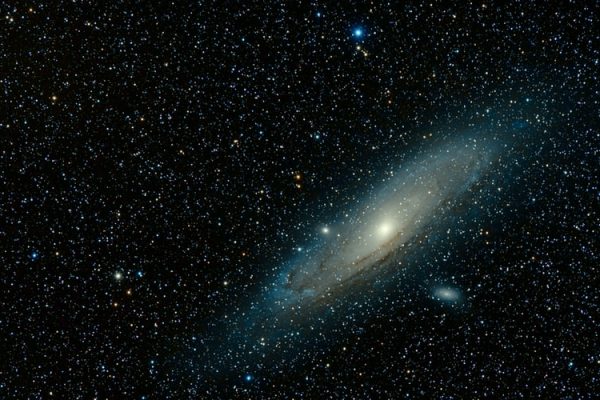The intellectual faculties of all these men were amalgamated by the resonance of wonder and stimulation of ‘reason’ which was a cataclysmic by-product of their allegiance to their faith, its beauty, and promise.
The intellectual faculties of all these men were amalgamated by the resonance of wonder and stimulation of ‘reason’ which was a cataclysmic by-product of their allegiance to their faith, its beauty, and promise.
The intellectual faculties of all these men were amalgamated by the resonance of wonder and stimulation of ‘reason’ which was a cataclysmic by-product of their allegiance to their faith, its beauty, and promise.
Nationalism. That’s what went wrong.
Brute, fallacious, grotesque nationalism drunk with enchantments of power and the debauchery of materialistic gains.
The interesting thing is, that the prodigious polymaths, revered engineers, prolific philosophers and ingenious inventors of the Islamic Golden Age came from a wide array of geographic backgrounds replete with distinctly unique individualistic culture, yet were bound together by an all-encompassing sense of spiritual purpose.
Al Kindi and Ibn Al Haytham amongst the Arabs; Jabir Ibn Hayan, Al Khwarizimi and Avicenna from the Persians; Al Zahrawai and Al Zarqali from the Moors, are just a few of plethora of brilliant minds that carved out the fate of the known-world through their intellectual prowess, sublime discoveries and captivating contributions to the human endeavor. There were no nationalistic schisms brought on by their differences in linguistic dispositions, heritage or communal hailing.
All the world's Muslims have fewer Nobel Prizes than Trinity College, Cambridge. They did great things in the Middle Ages, though.
— Richard Dawkins (@RichardDawkins) August 8, 2013
Recently, Richard Dawkins, a champion of contemporary atheism, made the point that there were very few Muslim scientists who had won a Nobel prize in science. That’s quite a grossly ignorant way to approach the subject; given that the Nobel Prize is a recent celebration of accomplishments, not an ancient one. There was no raggedy ‘showpiece’ such as the Nobel Prize for a measuring tool that was emblematic of gauging scientific profundity back in the 8th-12th centuries. The intellectual faculties of all these men were amalgamated by the resonance of wonder and stimulation of ‘reason’ which was a cataclysmic by-product of their allegiance to their faith, its beauty, and promise.
While the Europeans languished in the dark stone-cold walls of their grim castles; the Muslims, just a stone throw away, stretching from Cordoba to Babylon– enjoyed the magnificence of opulent palaces with sprawling lush green grounds, well-lit streets, intricately paved roads, robust systems of water purification, transportation of goods and innovative agricultural mechanisms.
These feats emanated a cultural brilliance which exuded truth, warmth, absolution and collective hope for an overall humanistic ‘greater good’ not limited to one religion, ethnicity or nation. An example of it being the Jews of Andalucía who enjoyed absolute religious freedom, state-sanctioned protection, and equal rights in all spheres of the societal fabric under Islamic rule of Spain for almost 800 years, never witnessed before in world history.
For example, Ibn-Al Haytham was a profound Arab mathematician, astronomer, and physicist that painted the colorful mosaic of the Islamic Golden Age. Born in Basra, Iraq and revered throughout history as “the father of modern optics”, he made compelling contributions to the principles of optics and visual perception. Ibn-Al Haytham’s most influential work was Kitāb al-Manāẓir (كتاب المناظر, “Book of Optics”). His research, findings and established fundamentals laid the very foundations to the field of optics as we know today!
Furthermore, he also pioneered the understanding that vision actually occurs when light bounces on an object and then is directed to one’s eyes. He noted that vision occurs in the brain, rather than in the eyes (as was incorrectly understood for centuries prior). Ibn-Al Haytham introduced the thought-process and concept that a ‘hypothesis’ must be duly and unequivocally proved by a set of relevant experiments based on confirmable procedures or mathematical evidence. This is what we know as the ‘Scientific Method’ today. Thus, he is the founding pioneer in the human understanding of the Scientific Method five centuries before the advent of Renaissance scientists themselves!
Similarly, Jabir Ibn-Hayyan, born in Khurasan in 721 CE, has been widely described as the father and founder of early chemistry, inventing many of the basic processes and equipment still used by chemists in modern-day laboratories today. His influential works covered a wide array of diverse subjects such as alchemy, cosmology, numerology, astrology, medicine, and philosophy.
Jabir’s name would forever become the most acclaimed in the complicated field of alchemy; he single-handedly crafted an information highway for most of the latter-day alchemists, including al-Kindi, al-Razi, al-Tughrai and al-Iraqi, all of whom lived in the 9th–13th centuries and all of whom were Muslims. His books strongly influenced the medieval European alchemists, cementing knowledge, proliferating research and amplifying the human endeavor towards advancements in modern chemistry and related breakthroughs that contributed towards human medicine.
So what’s the conclusion?
While it’s easy to lay the blame for the Muslim world’s nauseating plight on Western powers, imperialistic designs, capitalist greed, and Zionism, a big chunk of the fallacy lays on the ‘Muslim’ countries themselves in lieu of a socio-economic and geo-political standpoint.
An Islamic revival or Muslim technological resurgence can never be possible without embracing the very fundamentals that made mere strangers fall unflinchingly in love with an unknown man, 1400 years ago in the Arabian desert. Muhammad, peace and blessings of God be upon him, cleansed contaminated minds with the light of intellectual supremacy through compassion, selflessness, equality, respect and acceptance. The seedlings of basic humanistic values that make us human beings in the first place. Something, we have forgotten, shunned and relinquished today.
Political, economic and social instability are just the physical symptoms, while the spiritual-self that was meant to be the nucleating essence to our existences as a nation, a civilization, and a people – has already succumbed to the quicksand of ignorance. Laying, whimpering and gasping for a cure.





